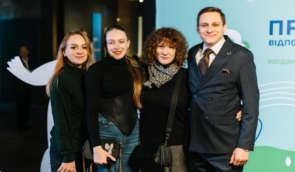Crimea, 11 Years later: Ukrainian human rights defenders demand accountability at Helsinki+50 Conference
On July 31, a side event was held during the Helsinki+50 Conference “Crimea: 11 years of occupation – restoring justice, reinforcing OSCE commitments”. It was organized by Human Rights Centre ZMINA, Crimean Human Rights Group, Centre of Civil Education “Almenda”, Regional Centre for Human Rights, Crimean Process, Human Rights House Crimea and the Netherlands Helsinki Committee.
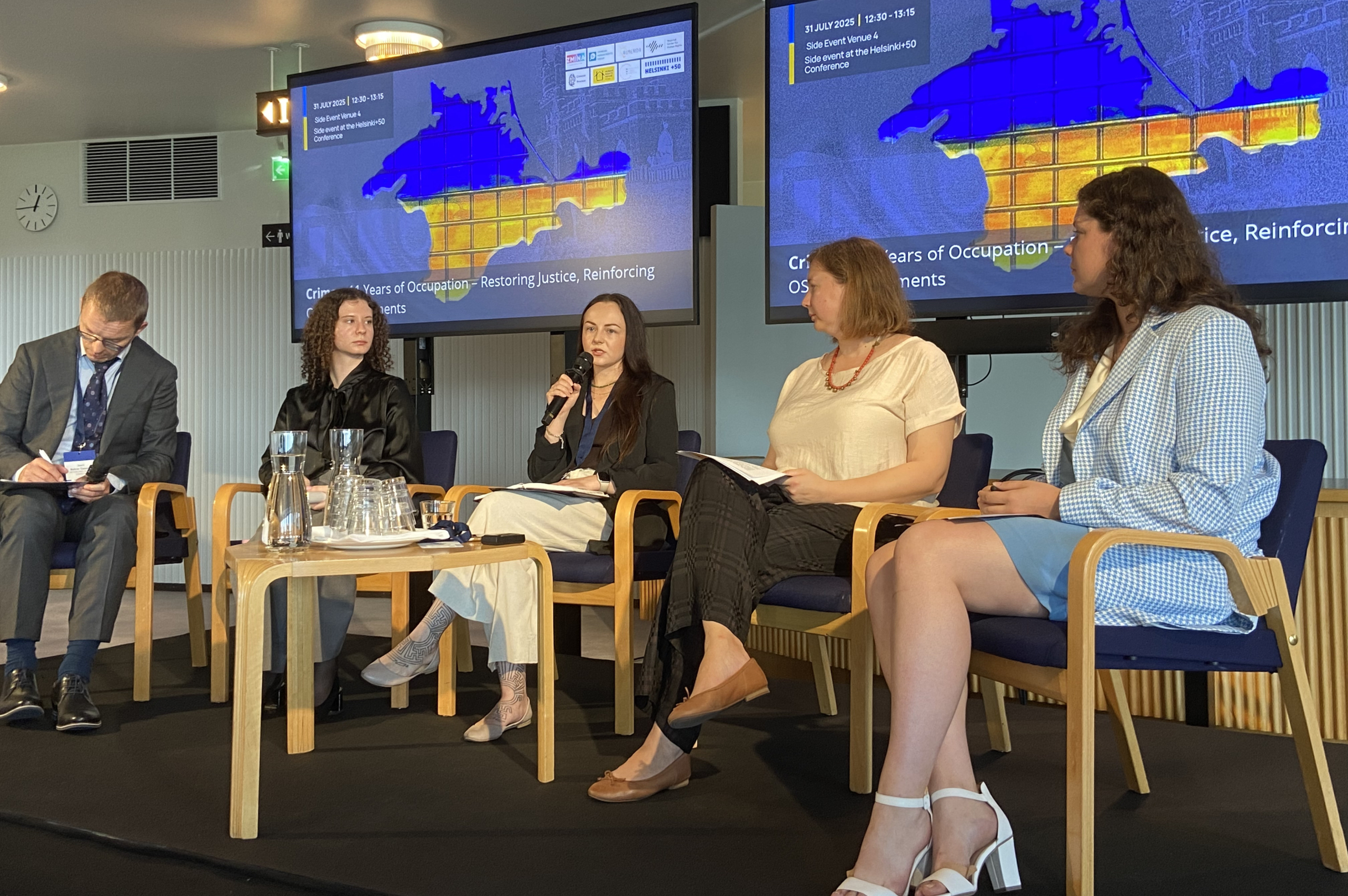 Photo: Side event. Credit: ZMINA
Photo: Side event. Credit: ZMINAThe discussion, moderated by an Executive Director of the Netherlands Helsinki Committee, Joeri Buhrer Tavanier, focused on the colonization of the peninsula, politically motivated persecution, militarization of education, indoctrination of children and hate speech as direct violations of the Helsinki principles.
Kseniia Korniienko from the Regional Centre for Human Rights reminded that 11 years ago, the Russian Federation began the illegal occupation of Crimea, violating Ukraine’s sovereignty and territorial integrity, as well as the fundamental principles of the Helsinki Final Act.
“The occupation violates the principle of sovereign equality of states, as Russia behaves as if Crimea is its territory, imposing its legislation, institutions and identity on the population, which is Ukrainian,” the human rights defender said.
She stressed that Russia’s policy in Crimea is an attempt to change the demographic composition of the peninsula through the systematic resettlement of Russian citizens: officials, judges, security forces, educators, doctors and pensioners, who are considered to be carriers of state ideology.
“This is not merely about staffing appointments, but a deliberate act of demographic engineering. Russia is using economic incentives, federal resettlement programs and the displacement of Ukrainian specialists and businesses to ensure the dominance of Russian identity in the region,” Korniienko added.
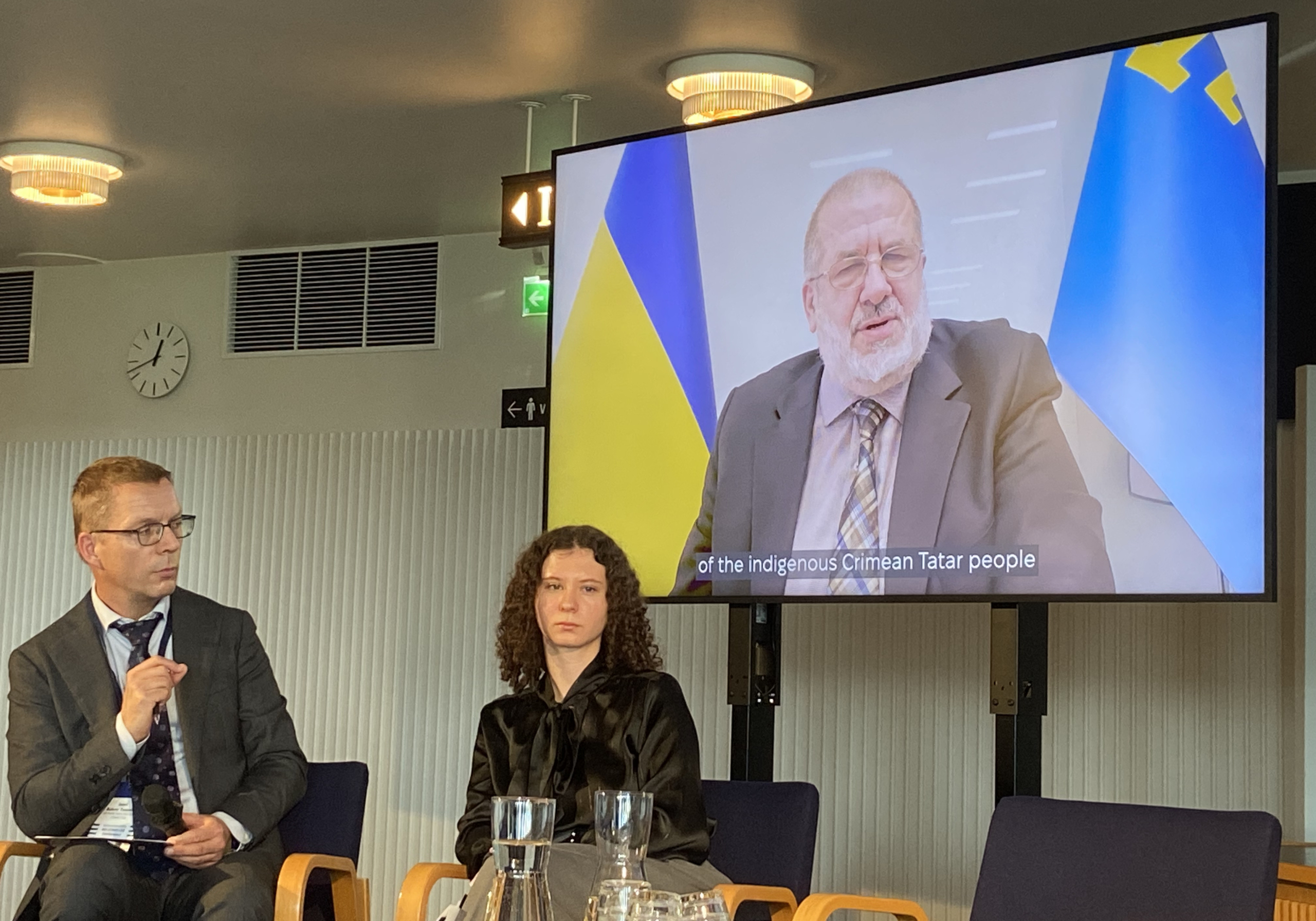 Photo: Head of the Mejlis of the Crimean Tatar People, Refat Chubarov. Credit: ZMINA
Photo: Head of the Mejlis of the Crimean Tatar People, Refat Chubarov. Credit: ZMINAThe Head of the Mejlis of the Crimean Tatar People, Refat Chubarov, noted that this is a long-standing policy of the Russian regime: “Half a century ago, on August 1, 1975, senior representatives of the Participating States of the Conference on Security and Cooperation in Europe signed the Helsinki Final Act. At that time, the Crimean Tatar people, already living in exile for three decades, were engaged in a desperate struggle against the Soviet regime for the right to return and live in their homeland.“
Chubarov reminded the public of the tragic deportation of the Crimean Tatars from their historical homeland — Crimea — on May 18, 1944. He called on the international community to recognize these actions by the Soviet Union as genocide against the Crimean Tatar people, as has already been done by Ukraine, Lithuania, Latvia, Estonia, the Czech Republic, Poland, the Netherlands, and Canada.
He emphasized that the repressions in Crimea continue: “Every day of the Russian occupation of Crimea is a continuation of the repressions and persecutions of the Crimean Tatars and residents of other nationalities. It is the continuation of a slow death in Russian prisons for hundreds of Crimean political prisoners, deprived of their freedom solely for preserving their human dignity.“
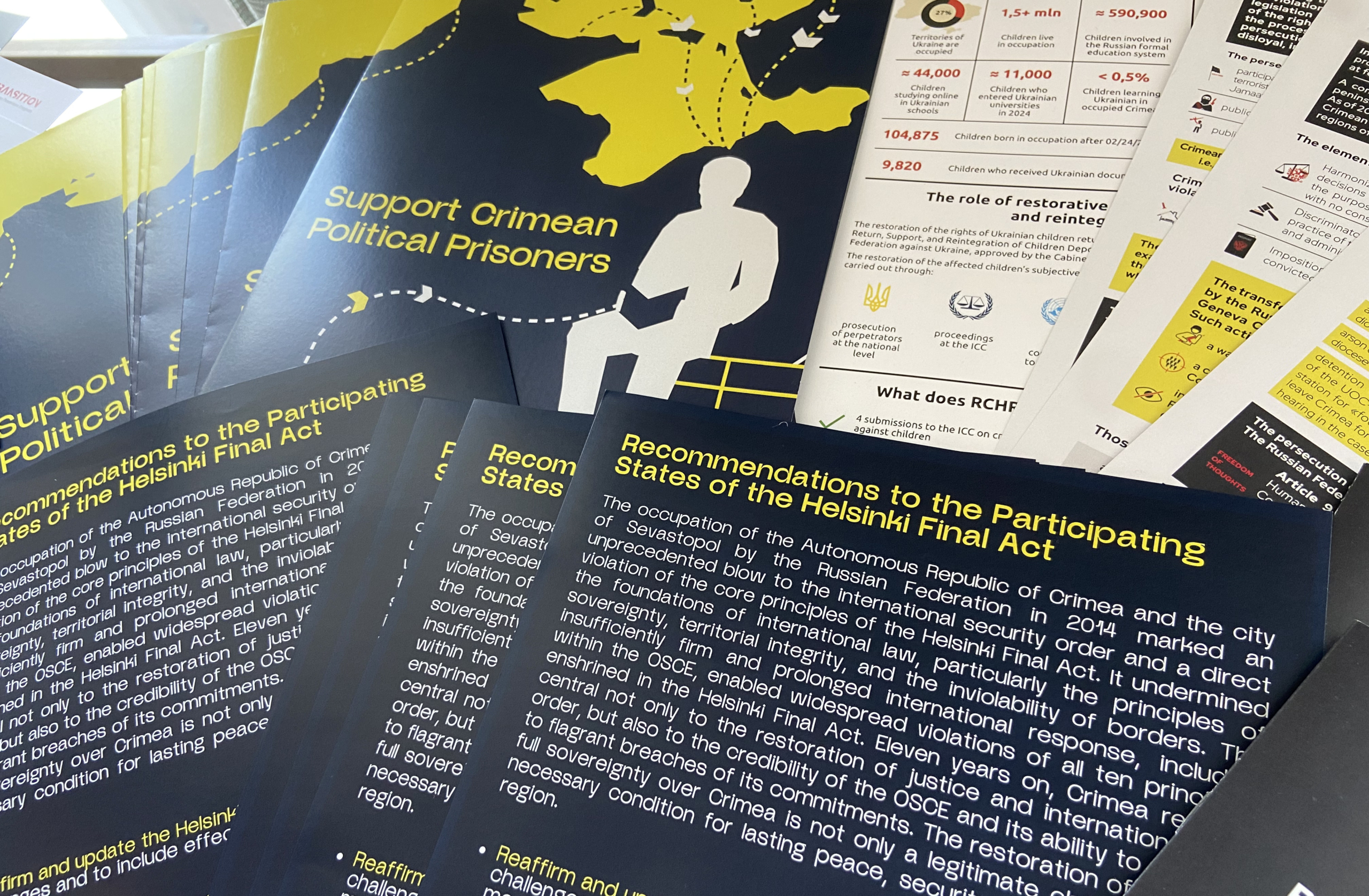 Photo: Handout materials. Credit: ZMINA
Photo: Handout materials. Credit: ZMINAThe topic was continued by Viktoriia Nesterenko, a Project Manager at the Human Rights Centre ZMINA, who spoke about the persecution of Crimean residents.
She stressed that Russia grossly violates international law since 2014: “ZMINA has been documenting violations of human rights and international humanitarian law since the very beginning of the occupation of Crimea. During this time, we have documented a large number of violations by the Russian Federation, which grows every year.“
The human rights defender drew attention to the fact that Russia does not recognize the illegal annexation of Crimea as an occupation and applies its national legislation there, violating international humanitarian law. This leads to a systematic pressure on the rights of the civilian population. Among the most common violations are politically motivated persecution for pro-Ukrainian position, journalistic activity or activism, as well as on religious and ethnic grounds: “We know about over 220 political prisoners, most of whom are Crimean Tatars. Most of them were deported to penitentiary institutions in the Russian Federation.“
According to her, these people are subjected to searches, abductions, torture, fabricated criminal cases – and all this is happening in conditions of complete impunity.
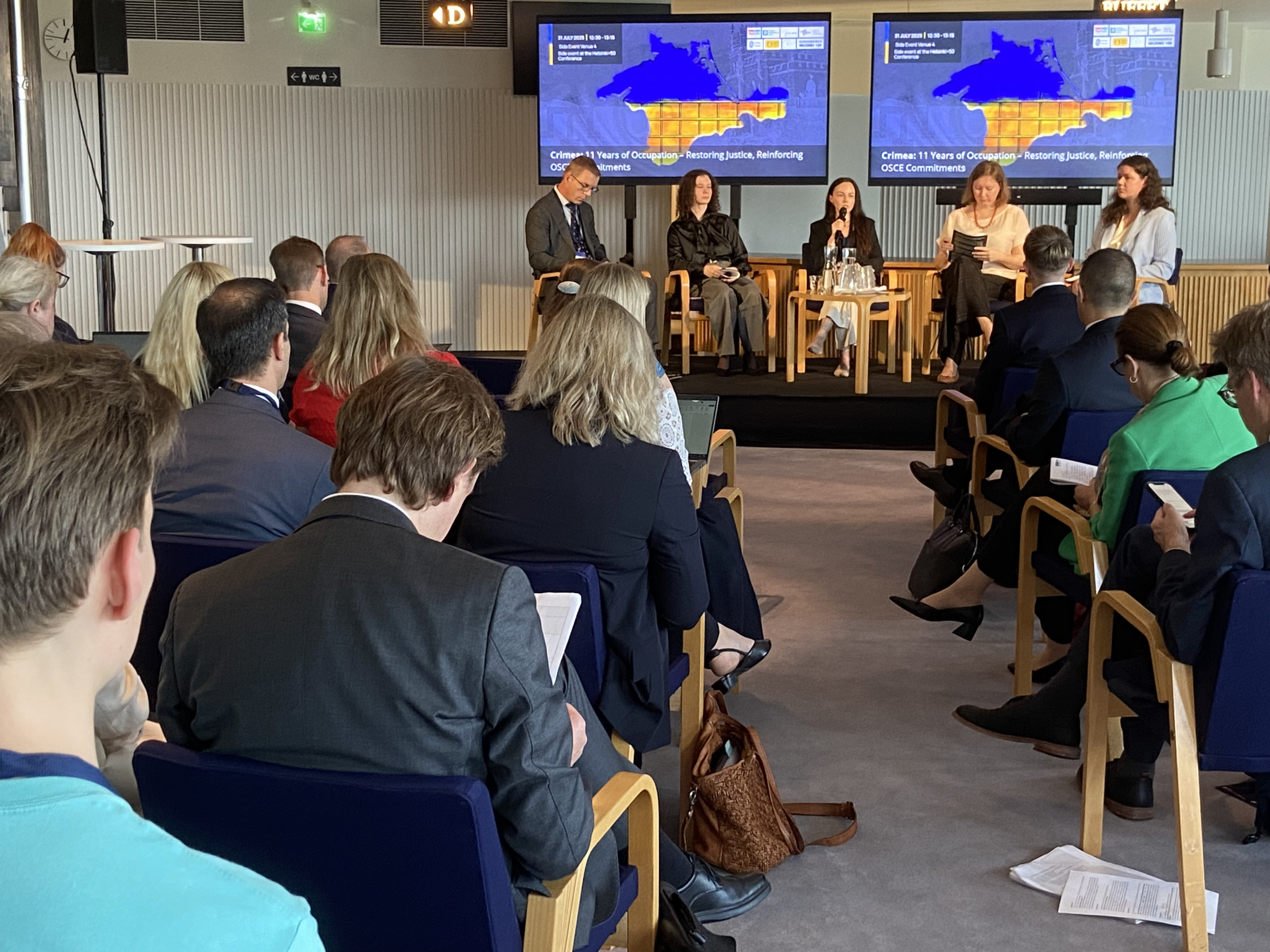 Photo: Side event. Credit: ZMINA
Photo: Side event. Credit: ZMINAMariia Sulialina, Head of the Board of the Centre of Civil Education “Almenda”, added that in addition to the displacement of the population, persecution, and intimidation of residents, Russia is also implementing indoctrination and militarization of children. She emphasized that a new generation has grown up in Crimea over the 11 years of occupation:
“More than 132,000 children have graduated from school during the years of occupation. They grew up in conditions where their cultural and social rights were severely restricted. Over half a million children still live under constant pressure — Russia is trying to erase their Ukrainian identity.“
The occupying authorities are changing educational standards, imposing a militarized curriculum, teaching children to shoot, and instilling hostility toward the West. Everything related to Ukraine is being repressed. “Before the occupation, 100% of children studied the Ukrainian language. Now — only 0.5%. Children have no access to Ukrainian history. Russian textbooks promote narratives about the “artificial creation” of Ukraine and the “protective mission” of the Russian Federation. New laws in Russia will make learning native languages in the occupied territories even more difficult,” Sulialina stated.
The human rights defender reported that children are even being persecuted for expressing Ukrainian identity:
“We document cases where a child may be sent to a psychologist or a “centre for combating extremism” just for wearing a Ukrainian badge or expressing support for Ukraine.“
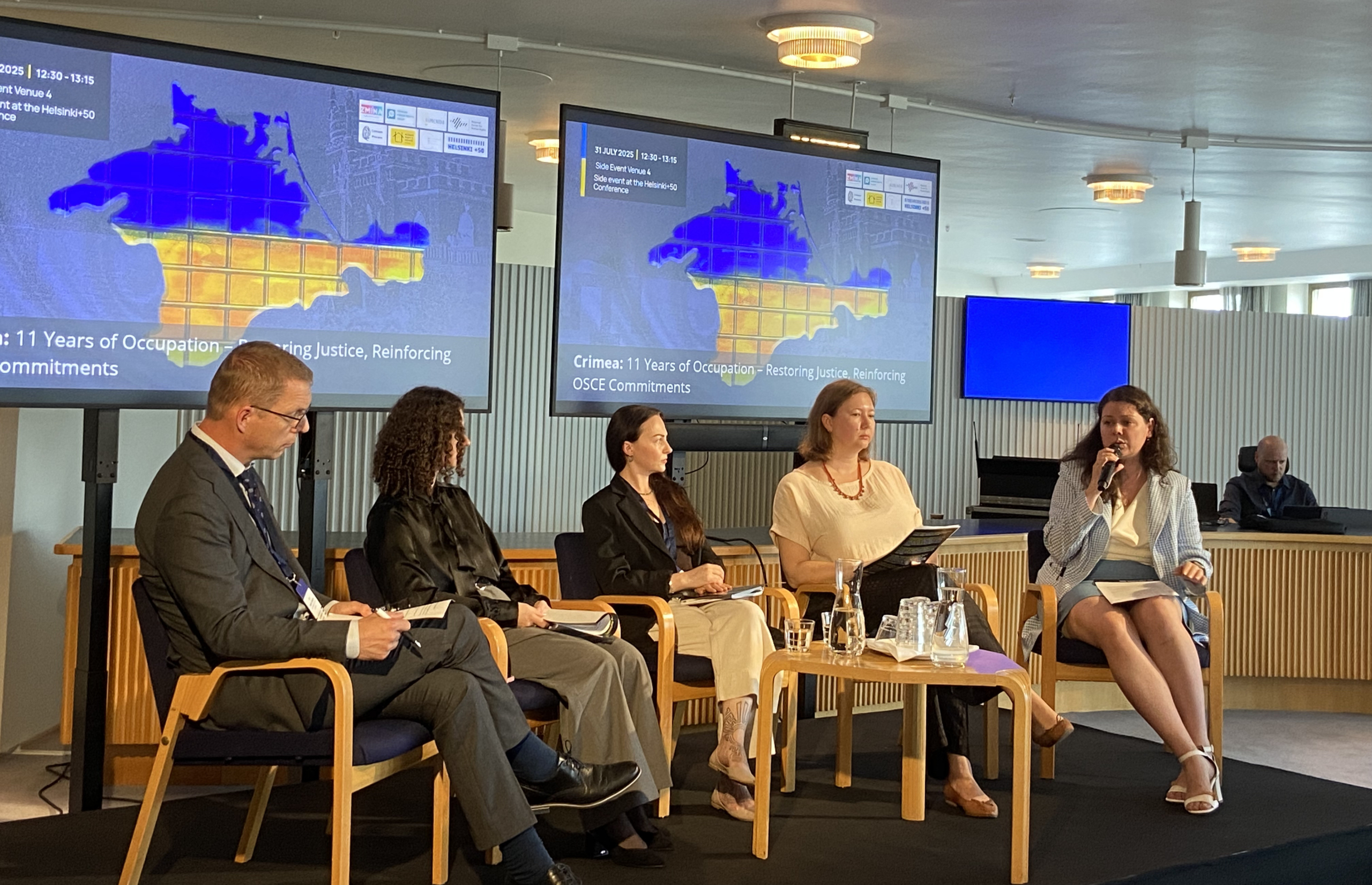 Photo: Side event. Credit: ZMINA
Photo: Side event. Credit: ZMINAThe Head of the Board of the Crimean Human Rights Group, Olha Skrypnyk, stressed the systematic spread of hate speech by Russian state media: “All the violations and international crimes mentioned by my colleagues are accompanied by propaganda and disinformation campaigns in the Russian media. Since the beginning of the occupation, the Russian media have systematically used hate speech against Crimean Tatars, Ukrainian activists, human rights defenders and journalists — these groups are the most frequent victims of criminal prosecution in fabricated cases.“
Skrypnyk noted that with Russia’s full-scale invasion, hate speech in the media has moved to a new level and transformed into direct calls for destruction: “Since 2022, the nature of hate speech has changed – it has transformed into open public calls for committing grave crimes. Russian journalists have refused to even imitate compliance with journalistic standards. Today, the public space is dominated by extreme hate speech and direct calls for destroying Ukraine and its people simply because of their citizenship or connection with Ukraine.“
She added that after 2022, Russian media actively spread the idea of armed aggression against the EU and the United States. Through messages about “satanists who have taken over Europe”, calls to “bomb decision-making centres” and “destroy cities that supply weapons to Ukraine”, Kremlin propaganda tries to legitimise potential violence and create an idea of Russia’s so-called “liberation” mission in Europe. In this context, Skrypnyk stressed the need for an international response to disinformation, as she said there is a direct link between propaganda and the scale of international crimes in Ukraine.
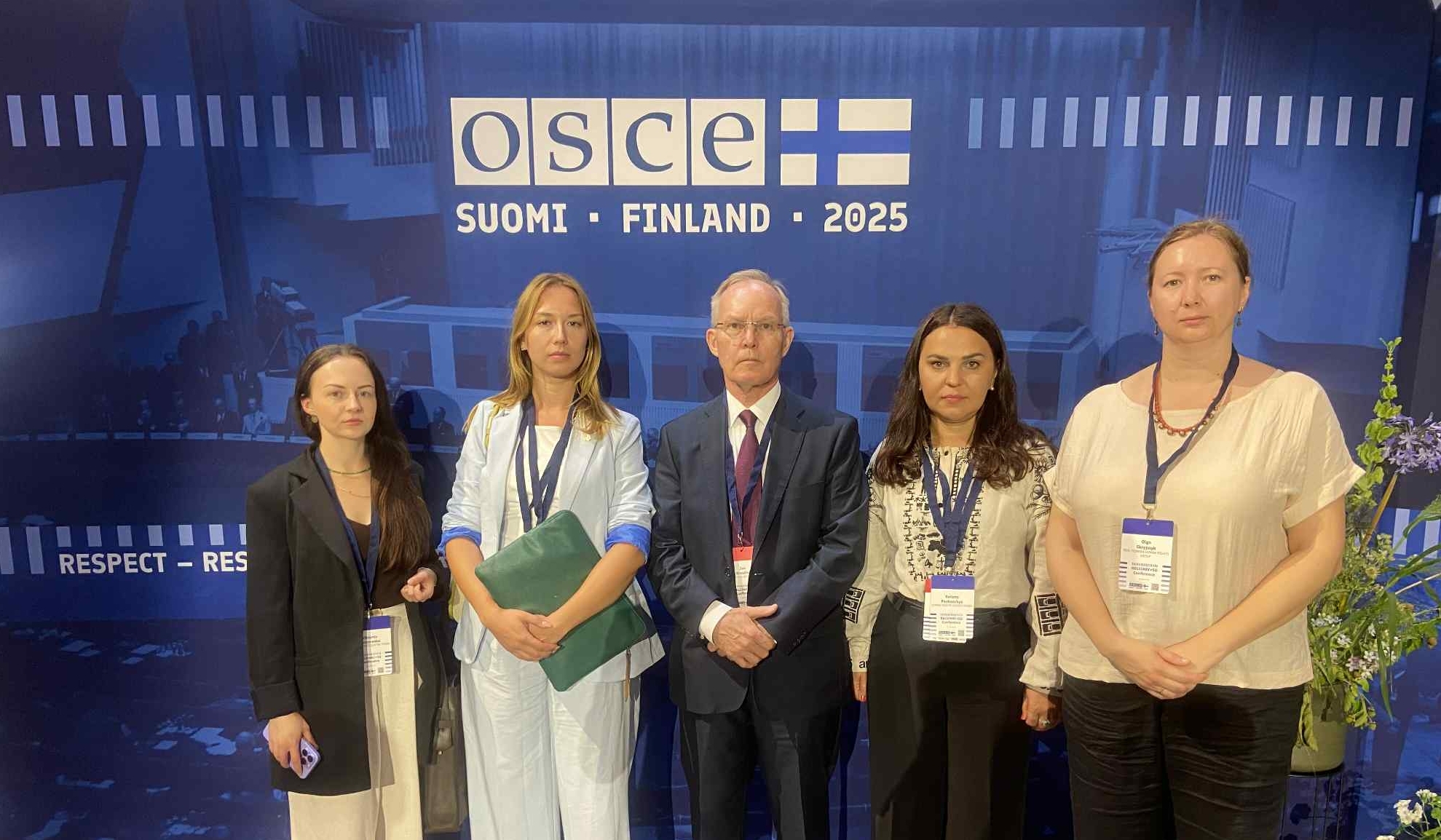 Photo: Meeting with the OSCE Representative on Freedom of the Media, Ambassador Jan Braathu. Credit: ZMINA
Photo: Meeting with the OSCE Representative on Freedom of the Media, Ambassador Jan Braathu. Credit: ZMINAThe participants surmised through the emphasis that in the 21st century, aggression cannot remain unanswered. If the OSCE tools are not able to respond effectively, they must be updated. The principles declared in 1975 must continue to work today to protect dignity, rights and sovereignty.
In addition, representatives of Ukrainian organizations organized a side event titled “The Future of the Helsinki Final Act: Restoring Justice and Holding Russia Accountable” and held a series of bilateral meetings with diplomats and officials from Ireland, the United Kingdom, Switzerland, the United States, the Czech Republic, Norway, as well as with the OSCE Representative on Freedom of the Media, Ambassador Jan Braathu.
For information
The Helsinki+50 Conference marks the 50th anniversary of the Helsinki Final Act, a foundational document for peace, human rights, and security in Europe. The conference participants gathered to assess the current challenges to the Helsinki principles and discuss how to strengthen the rules-based international system in response to Russia’s aggression against Ukraine.
If you have found a spelling error, please, notify us by selecting that text and pressing Ctrl+Enter.




